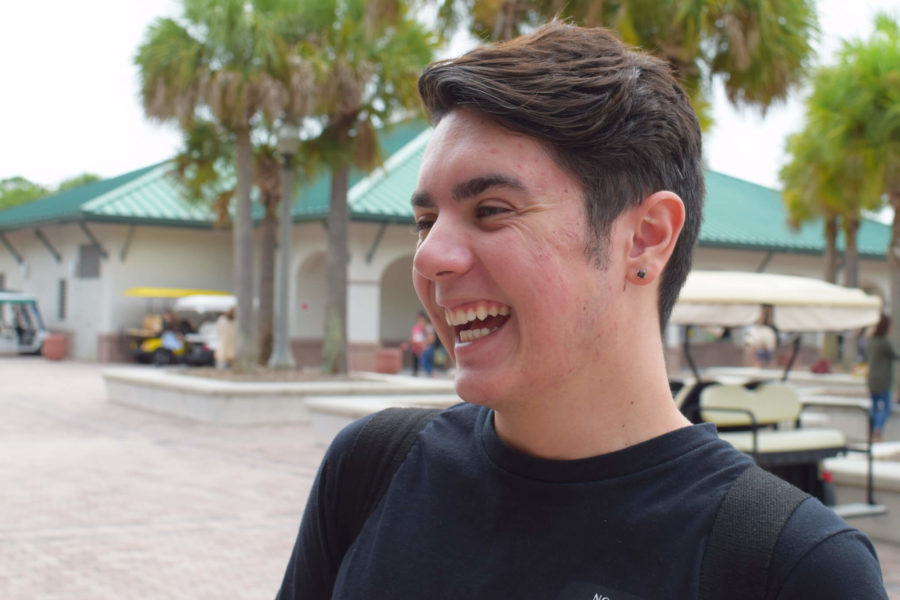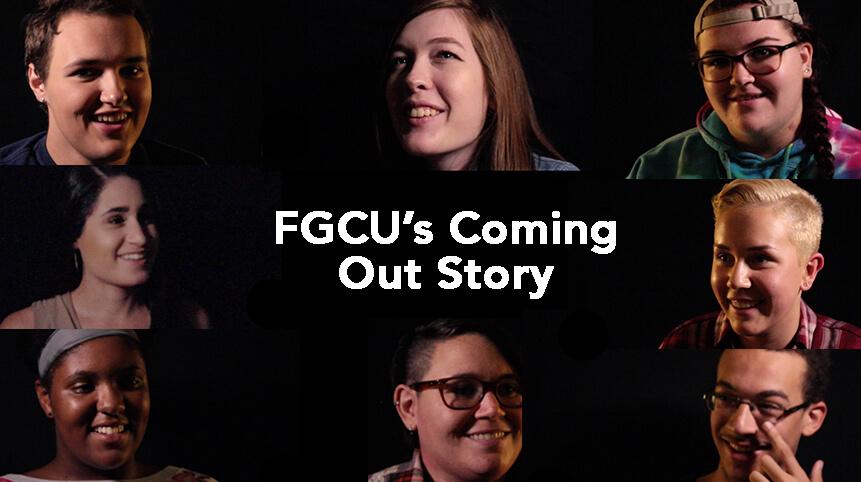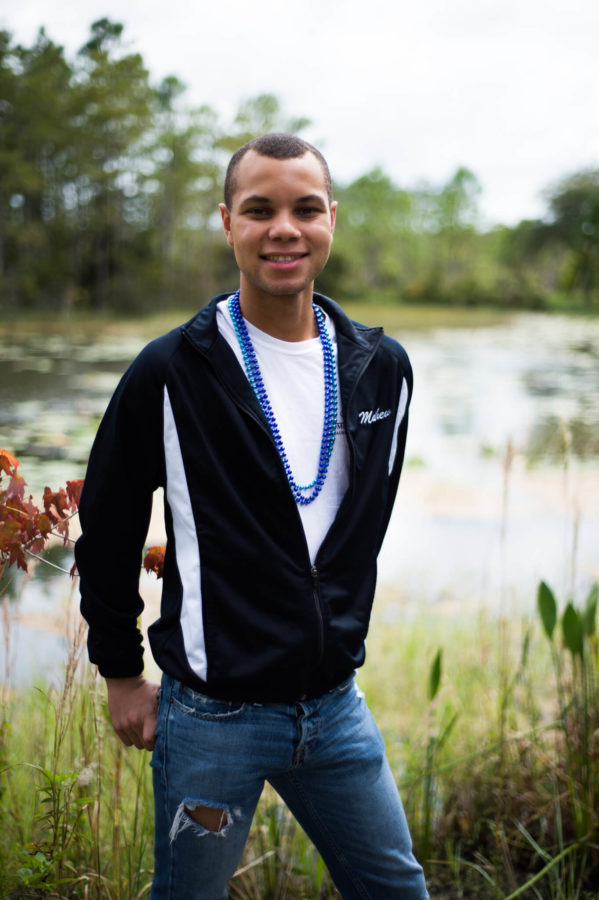A harsh reality many LGBT individuals face is coming out with the fear of being rejected by their religious family, church or faith entirely.
Since the average age of coming out is now 17, according to a study conducted by the LGBT rights group Stonewall in 2010, many incoming FGCU students have likely recently come out or may be about to.
Though each Southwest Florida church differs in its approach, there are some that consider themselves to be “open and affirming,” meaning they fully accept gays, lesbians, bisexuals and transgender persons.
Much like the rest of The Episcopal Church denomination, Iona-Hope Episcopal Church, located off Gladiolus Drive in Fort Myers, is open and affirming to the LGBT community.
Rev. Ray Buchanan, the rector at Iona-Hope — the Anglican Church’s equivalent of a priest — said the congregation boasts at least 200 members year-round, and that number grows during season.
Ten percent of the decade-old congregation is LGBT, and many are leaders in the church.
“Their sexuality does not prohibit them from full participation in the life of the congregation,” Buchanan said. “We celebrate their personhood and relationships as we have historically celebrated straight folks and relationships.”
“All are welcome” can be found on all of Iona-Hope’s signage as homage to the church’s baptismal covenants of inclusivity and servanthood.
“There are many Christians who celebrate and accept you as people who are loved by God,” Buchanan said to the LGBT community. “You do not have to live your life of faith alone.”
Saint John the Apostle Metropolitan Community Church, located off McGregor Boulevard a mile from Historic Downtown Fort Myers, takes being open and affirming a step further.
“I believe scripture is given for grace and light and comfort, not to be used for hate,” Saint John Pastor Steve Filizzi said. “God commanded us to love, and we don’t get to decide who that applies to.”
Unlike other congregations that simply accept the LGBT community, the denomination of MCC was entirely founded upon the inclusion of LGBT individuals.
The year before New York’s Stonewall riots, in 1968, Rev. Troy Perry formed MCC after being kicked out of the Pentecostal denomination for his homosexuality. Forty- eight years later, MCC remains deeply rooted in the belief that LGBT individuals should be welcomed as any other churchgoer.
Saint John has, on the book, 146 members — 85 percent of which identify as LGBT. The majority of LGBT members come from Catholic backgrounds.
“People come to us from a variety of backgrounds,” Filizzi said. “But, five out of the six people present at the most recent membership meeting were former Catholics.”
Pope Francis, the leader of the Roman Catholic Church, made waves for preaching nonjudgment in 2013.
“If a person is gay and seeks out the Lord and is willing, who am I to judge that person?” Francis said.
Despite his personal statement, the Catholic Church has stood firm in its traditional beliefs in the following three years.
But, former Catholics seem to find comfort in Saint John’s weekly Eucharist, the consuming of bread and wine in Jesus Christ’s memory.
“A lot of nondenominational churches don’t have Eucharist weekly, or at all,” Filizzi said. “It’s important to us and makes some new members feel more at home.”
While it shares some characteristics of other denominations, Saint John differs from most congregations because its congregation is majority LGBT, and outside of its services, it hosts a trans life group, gay Alcoholics Anonymous group, gay Narcotics Anonymous group and HIV and hepatitis testing.
While the number of open and affirming churches continues to grow, the majority, locally and globally, still follow traditional practices.
Filizzi spoke optimistically about the direction the Christian church as a whole is headed but said he was aware the majority of churches still follow traditional beliefs.
“They are doing spiritual harm to the souls of some of their members,” Filizzi said, “by not accepting who they are, who God made them to be.”






































Melissa Martinez • Jul 24, 2021 at 10:29 pm
I don’t care what Pope Francis said. He is not the Heavenly Father. He has brought so many lies to the word. Yes we do love them. To teach them right from wrong. So the Bible says rebuke what is evil. What did God do to Sodom and Gomorrah. The Bible says in the last days they would call evil good. Repentance is so important. This time the earth will be detroyed by fire sayith YAHUAH.